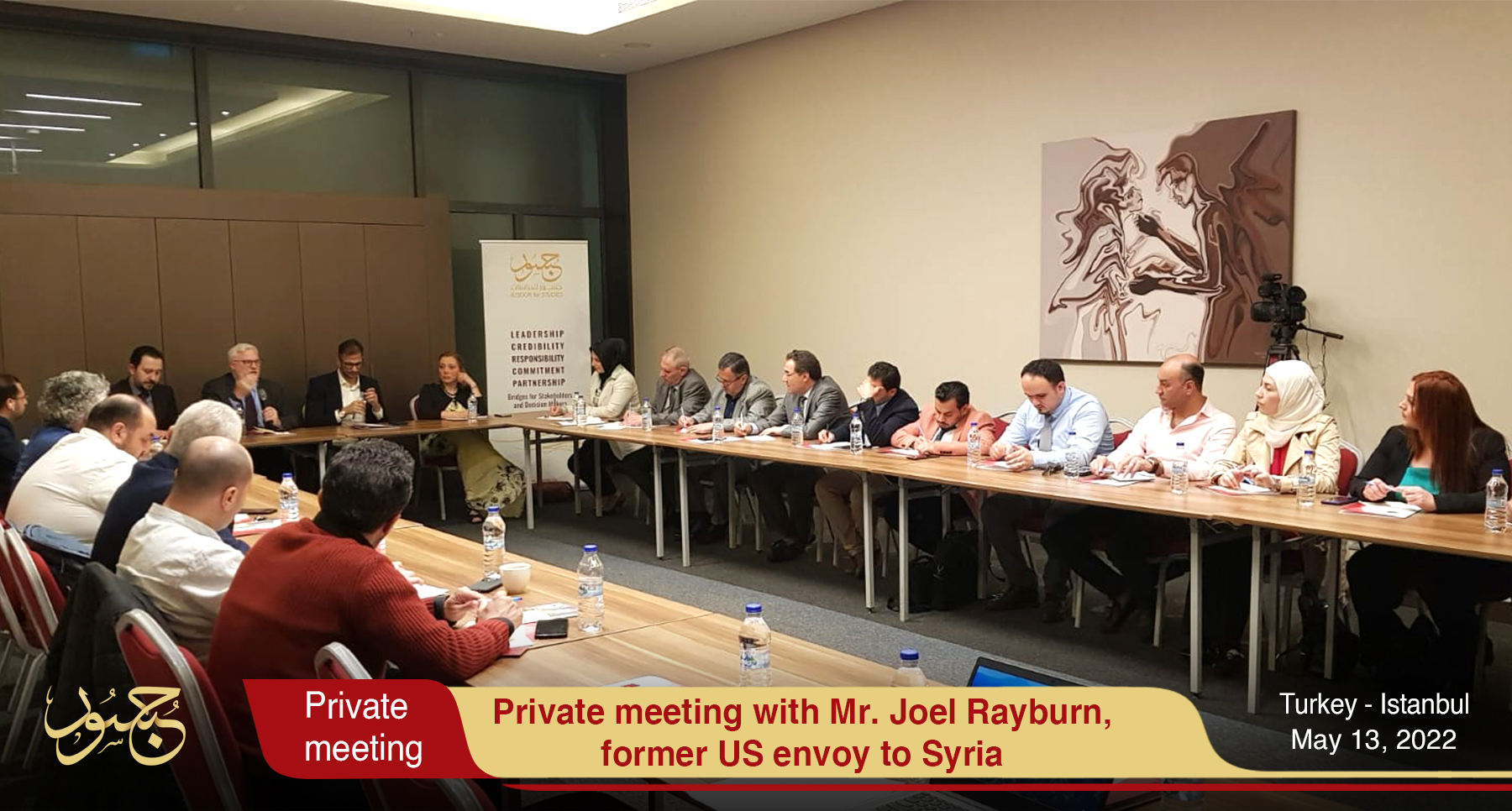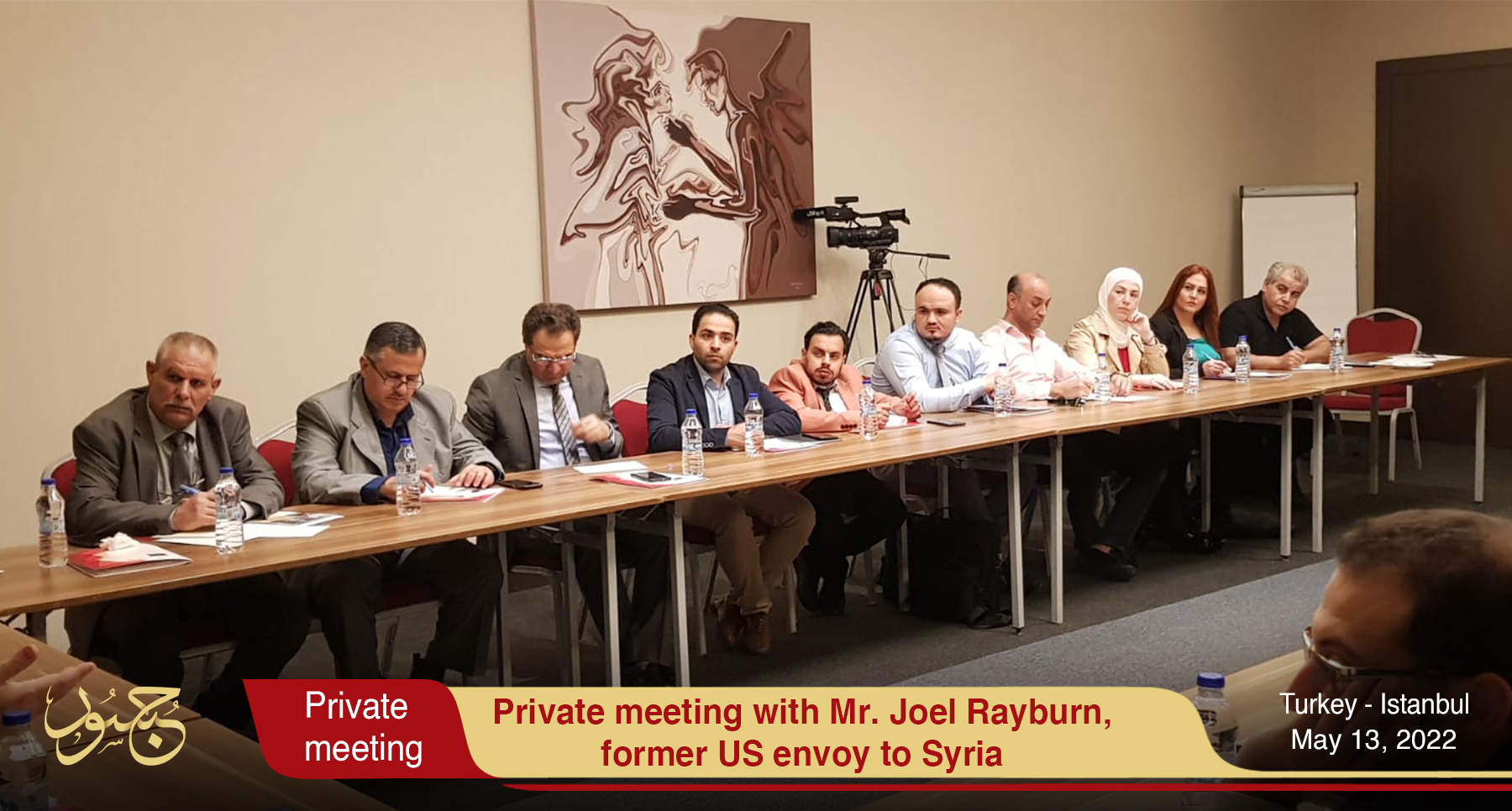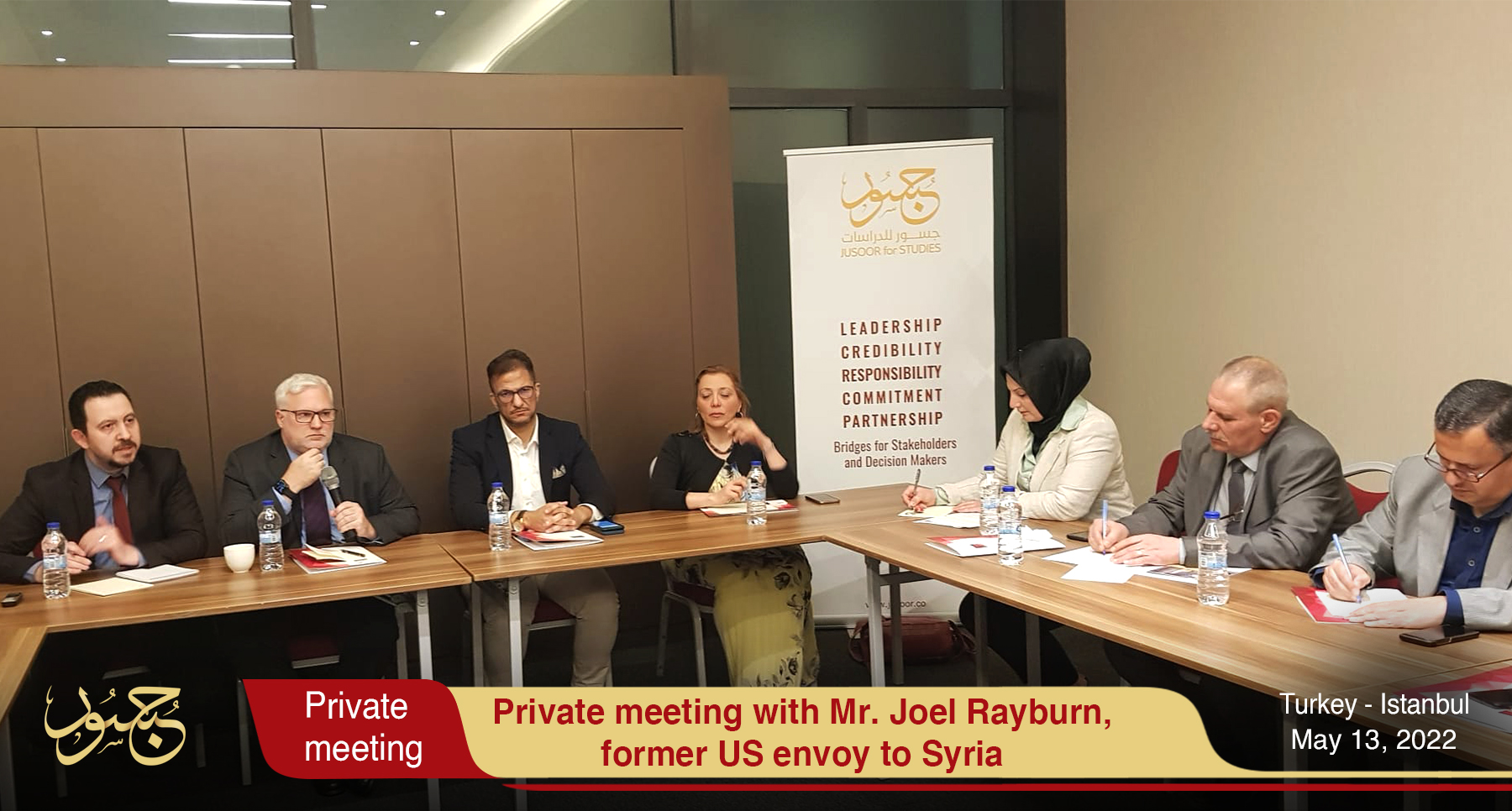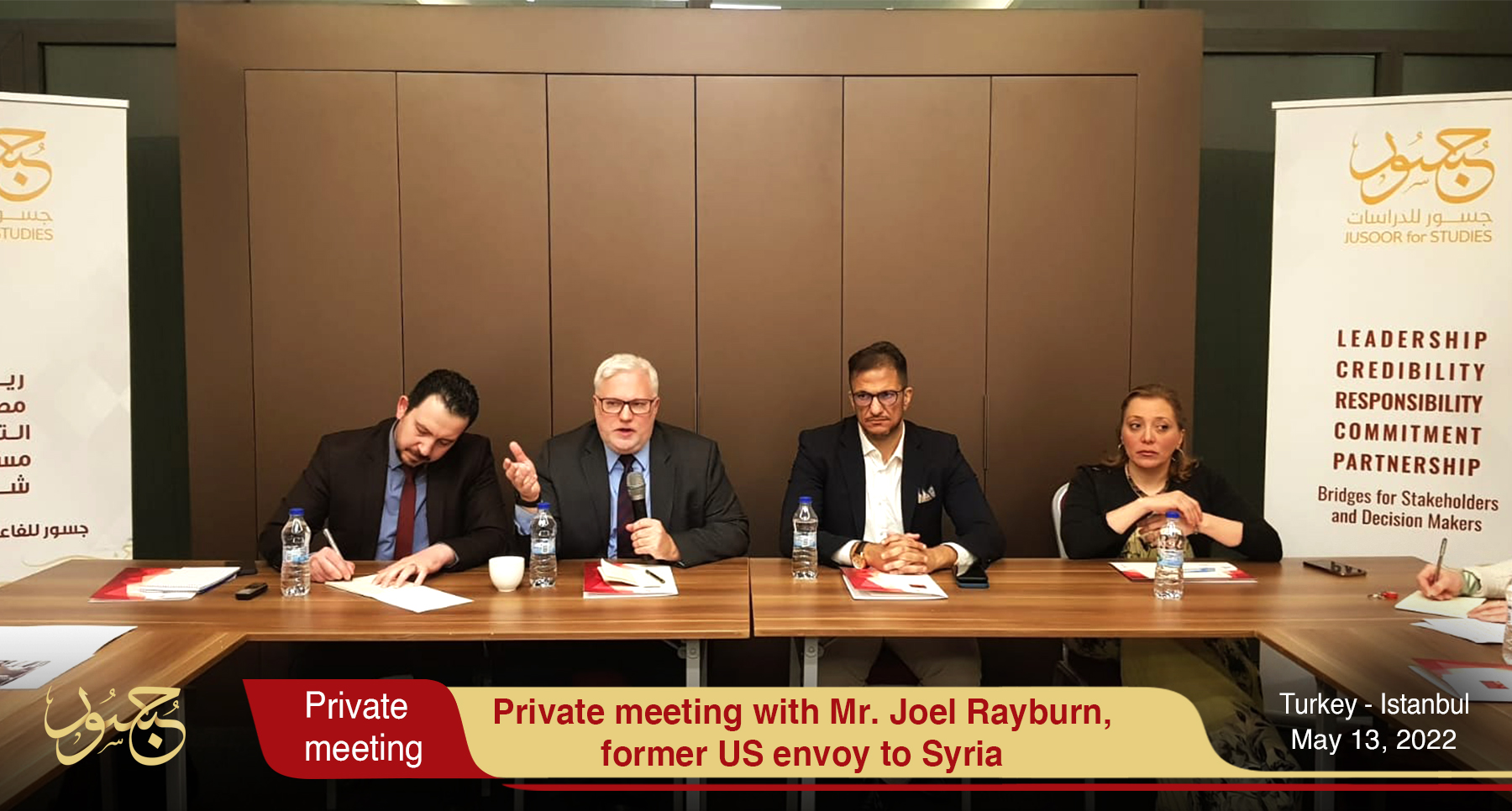US Policy in the Middle East and Syria after the Russia-Ukraine War
US Policy in the Middle East and Syria after the Russia-Ukraine War
Jusoor Center for Studies held on Friday, May 13, 2022 a special discussion session and then an interactive meeting with Mr. Joel Rayburn, former Deputy Assistant Secretary for Levant Affairs, responsible for implementing U.S. policy concerning Syria. The participants focused on the impact of the Russian invasion of Ukraine on the attitudes of the local and international actors in Syria and their relations.
Mr. Muhammad Sarmini, President of Jusoor Center for Studies opened the meeting by welcoming the participants in general and the American guest in particular. Mr. Sarmini also emphasized the need for holding direct dialogue and discussion sessions between Syrians and politicians and experts in Western countries, especially the United States of America.
In the first session of the meetings, Mr. Rayburn reviewed the foundations of US foreign policy in general and the Middle East region in particular, which are very closely related to the various international relations in which America is an essential party. The Syrian file whose importance the US administration must be aware of is a major file within the American policy of the Middle East, especially with the great and rapid changes after the Russian invasion of Ukraine.
Then, an interactive dialogue was held, where there were many questions that Mr. Rayburn discussed with the participants for more than an hour about the Russian withdrawal from Syria and the American position on the field changes that followed. Also, Mr. Rayburn talked about the matter of the US political position on the normalization of relations with the Syrian regime and the file of economic sanctions and the authorised exceptions.
After the closed first session ended, Mr. Rayburn gave a briefing on the US policy towards the Syrian issue and related matters. Then, he discussed with journalists and media professionals their questions and what they quoted from his responses and media statements. After the official end of the second session, the websites and media institutions were given the opportunity to take private meetings with the former US envoy to Syria.











